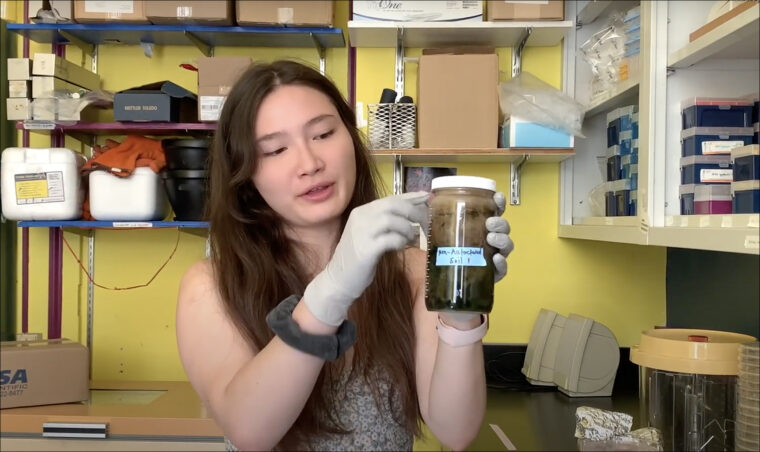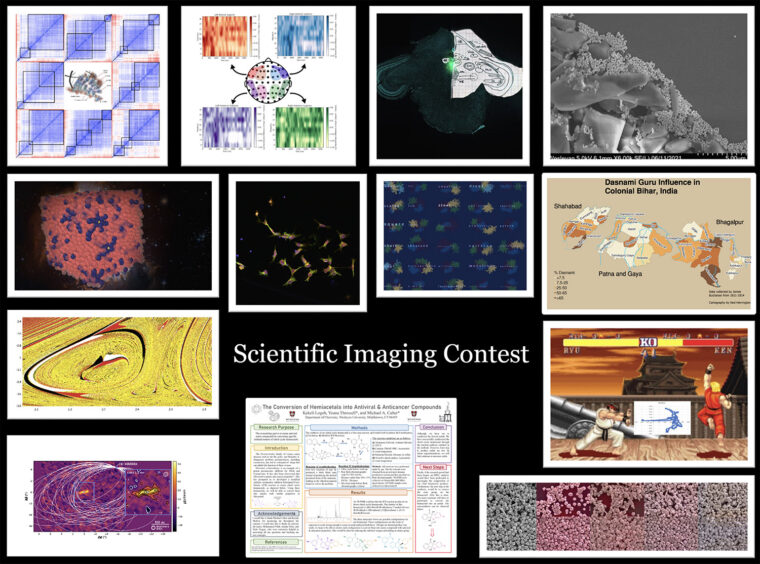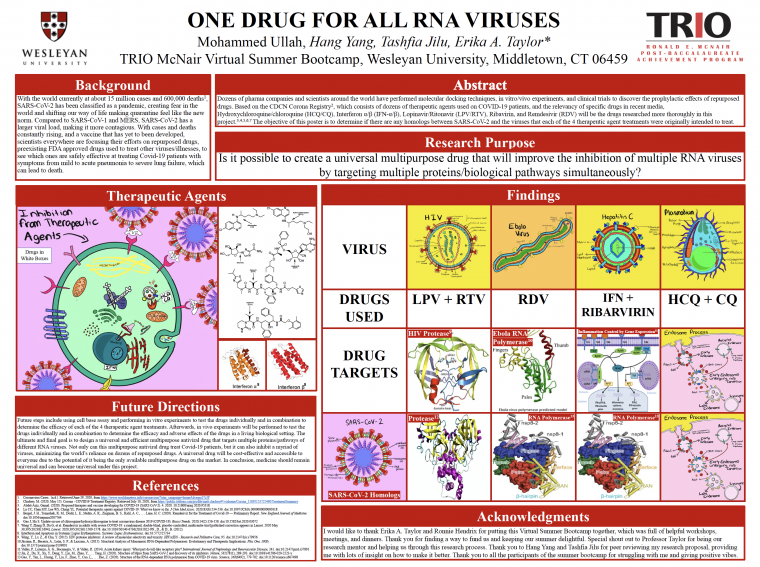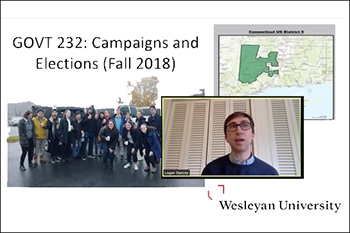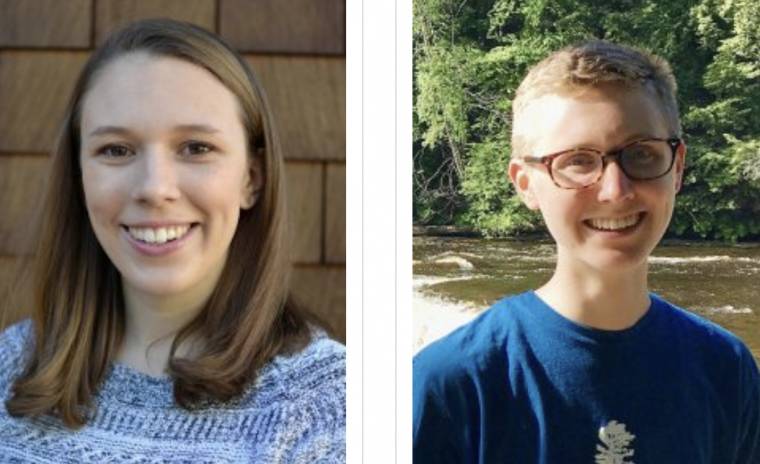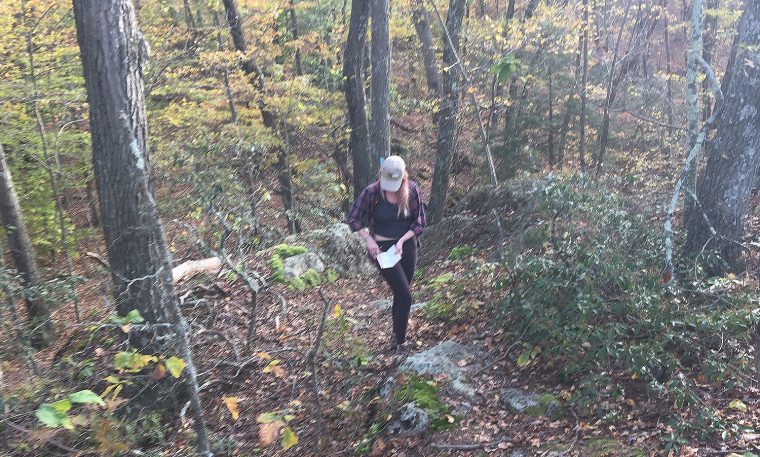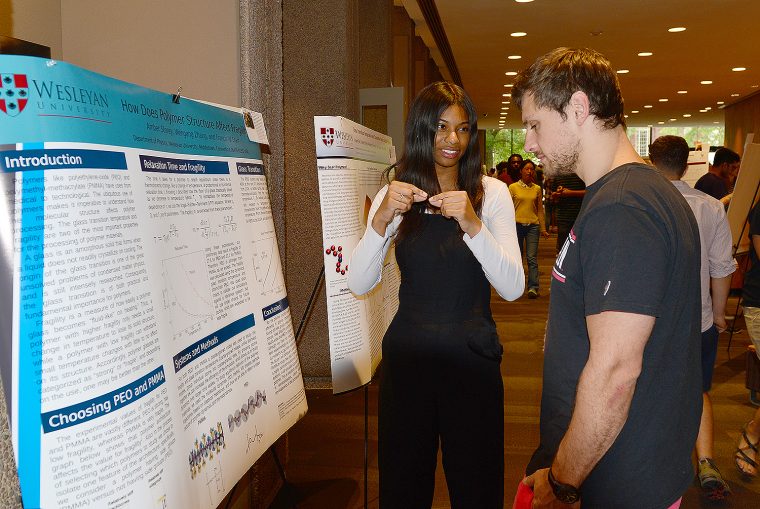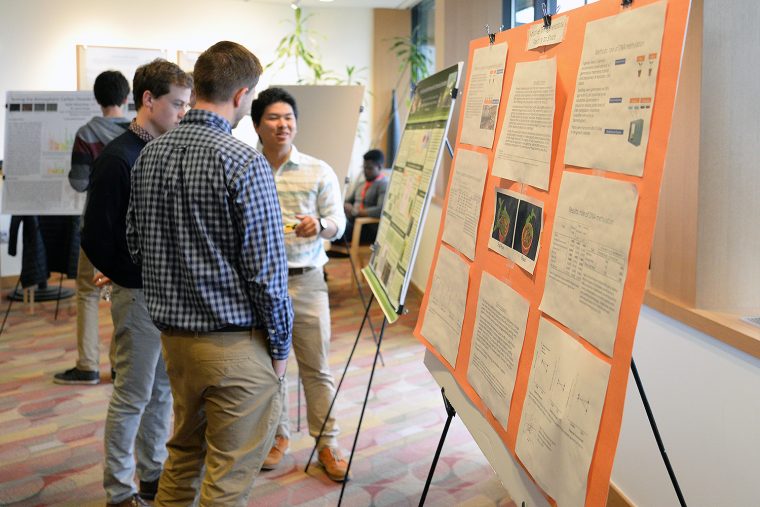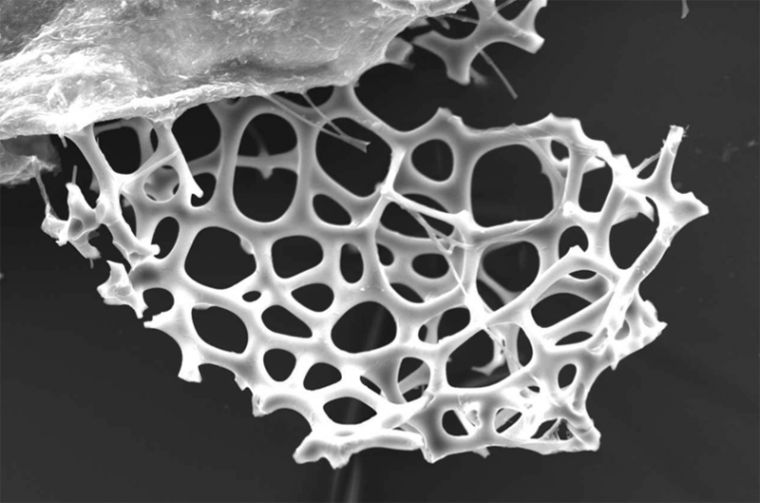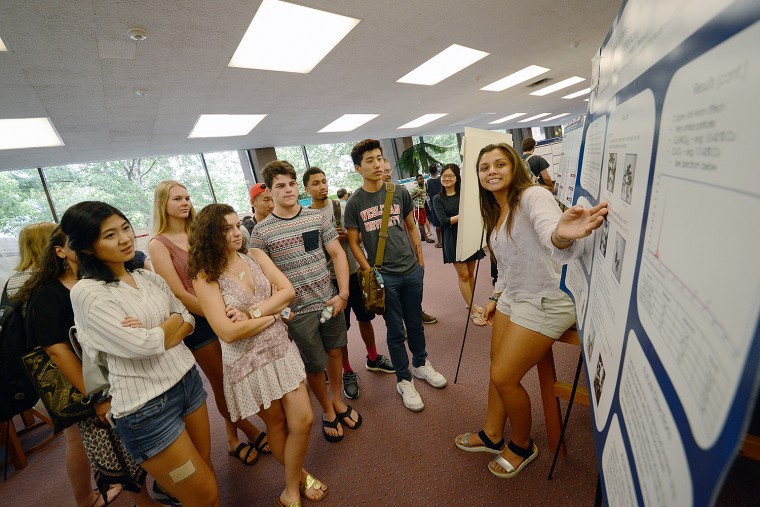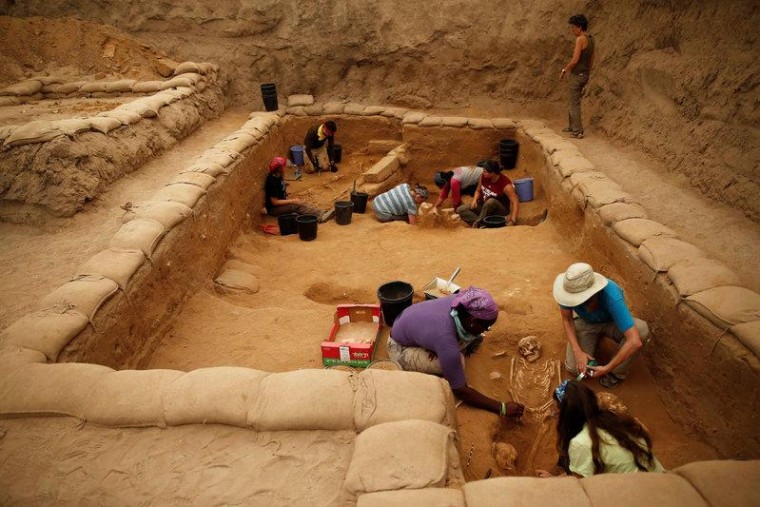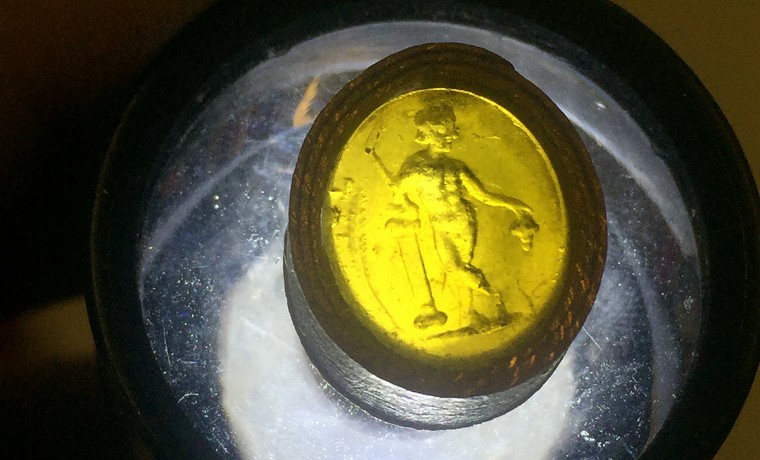A team of researchers at Wesleyan has discovered new strains of bacteria—located on the University's campus—that may have the ability to break down microplastics and aid in the world's ongoing plastic waste crisis. Microplastics, which measure less than .20 of an inch, enter the ecosystem— and our bodies— largely through the abrasion of larger plastic pieces dumped into the environment. According to a study published in the Journal of Environmental Science and Technology, the average person consumes at least 50,000 particles of microplastic a year and inhales a similar quantity. "Plastic is typically classified as a non-biodegradable substance. However, some…
At first glance, a viewer sees a single image of pink-tinted cubes, resembling a bacteria culture from high school biology. But upon closer examination, the viewer begins to see a series of other shapes—triangles to hexahedrons to tetahexahedraons (cubes with four-sided pyramids on each face). "If you stare at this image for a while, you can see that it's actually a series of five images in the top row, and five images on the bottom row, and each of these images show us nanoparticles that are made of gold and copper," said Brian Northrop, professor of chemistry. "It's intriguing, captivating,…
This summer, 12 Wesleyan students who identify as first-generation/low-income learned more about research methods and proposal-writing through the first McNair Bootcamp. Held in conjunction with Wesleyan's Ronald E. McNair Post-Baccalaureate Program and the Wesleyan Mathematics and Science Scholars (WesMaSS) Program, the bootcamp provided a solution for summer research students who were unable to transition their in person research projects into remote research during the COVID-19 pandemic. "You certainly don't want students doing organic chemistry in their kitchens back home," said bootcamp co-founder Erika Taylor, associate professor of chemistry. "Many types of research aren't able to be translated to 'virtual research'…
Associate Professor of Government Logan Dancey foresees many important opportunities for students to get involved and make a difference with upcoming local elections this fall—and the Engage 2020 (E2020 initiative) will be a prime vehicle for that work. Dancey recently gave a presentation via Zoom video webinar to Wesleyan faculty and staff about his research on American electoral politics and his work with students on this topic. Featured as part of the regular staff luncheon series, Dancey’s talk was titled “Student-Centered Elections Research: From the Middletown Mayoral Race to E2020." (more…)
Two Wesleyan students are the recipients of the Friends of the Wesleyan Library's third annual Undergraduate Research Prize. Emma Leuchten '19, an anthropology and religion double major, received the first place prize for her senior essay, "Anthropology Beyond Belief: Navigating Dreams and Reality in the Burmese Weikza Tradition." Leuchten based the paper on fieldwork she conducted in Myanmar during a semester abroad. Her advisor was Elizabeth Traube, professor of anthropology. The essay explores quests for power and knowledge in a contemporary Burmese wizardry tradition. Drawing from personal interviews with weikza (wizard-saints), devotees, and skeptics, Leuchten examines the tensions that have arisen between this…
Last fall, 19 students enrolled in the Earth and Environmental Sciences 280 course, Introduction to GIS, assisted a local organization while learning data analysis skills. At the start of the semester, the class teamed up with community partner Emma Kravet, education director at the Connecticut Forest & Park Association (CFPA). Kravet expressed a need for a mapping tool that shows the location of schools and other community resources near the CFPA's blue-blazed hiking trail system. If such a map existed, she could facilitate more meaningful connections to schools and organizations near the trails. The class broke into five thematic groups to…
More than 120 undergraduate research fellows shared their summer and ongoing research during the Wesleyan Summer Research Poster Session held July 27 in Exley Science Center. “This really is wonderful that all these students are on campus this summer and that they are here, sharing their research,” said faculty advisor Tom Morgan, the Foss Professor of Physics. "It's really incredible." Photos of the poster session are below: (Photos by Olivia Drake) (more…)
(more…)
This summer, Stephen Devoto, professor of biology, professor of neuroscience and behavior, launched the inaugural Wesleyan Scientific Imaging Contest. The contest, which recognizes student-submitted images from experiments or simulations done with a Wesleyan faculty member that are scientifically intriguing as well as aesthetically pleasing, drew 35 submissions from the fields of physics, biology, molecular biology and biochemistry, psychology, earth and environmental science, chemistry and astronomy. Participants submitted an image along with a brief description written for a broad, scientifically literate audience. The entries were judged based on the quality of the image and the explanation of the underlying science. The first-place prize went…
(more…)
Two Wesleyan students, one recent alumna and a faculty member contributed to a groundbreaking discovery of the first Philistine cemetery, a crowning achievement of more than 30 years of excavation in Ashkelon, Israel. Archaeologists and scholars have long searched for the origin of the Philistines, and the discovery of the cemetery is poised to offer the key to this mystery. Findings from the cemetery, dated to the 11th–8th centuries BCE, may well support the claim – long inferred and recorded in the Bible – that the Philistines were migrants to the shores of ancient Israel who arrived from lands to the…
During the Roman Empire, the art of gem carving or intaglio provided a way to characterize one's self, family or acquaintances. This summer, three Wesleyan students with an interest in classical studies worked with a Roman intaglio collection previously owned by J. Pierpont Morgan (father of J.P. Morgan) at the Wadsworth Atheneum Museum of Art in Hartford. As interns, Maria Ma '17, Margot Metz '18, and Emma Graham '19 collaborated on documenting and cataloging about 200 intaglio gems, which made the collection accessible to a wider audience of scholars and museum visitors. The gems were hidden from public view for decades. "It's so exciting that our students had the opportunity…


